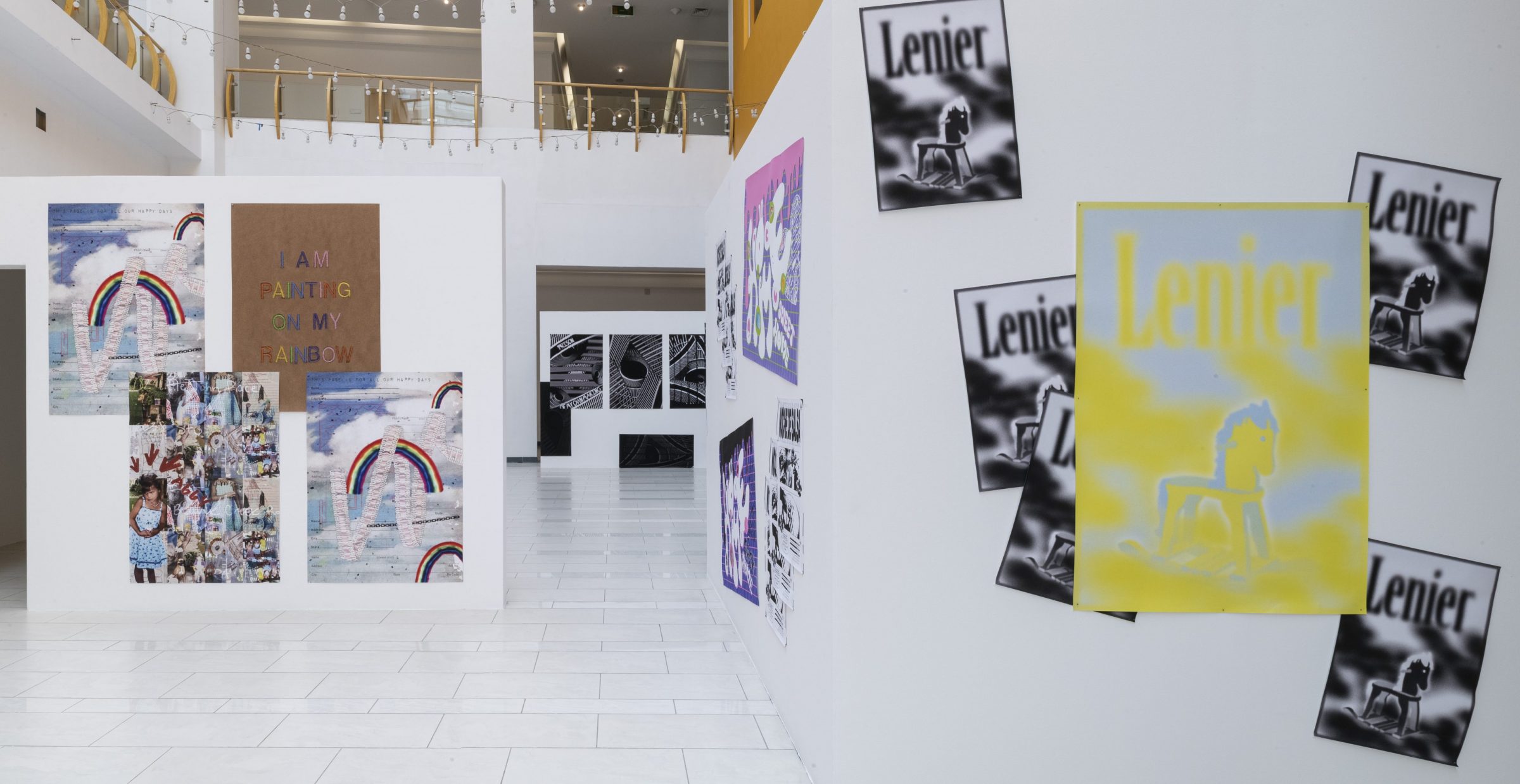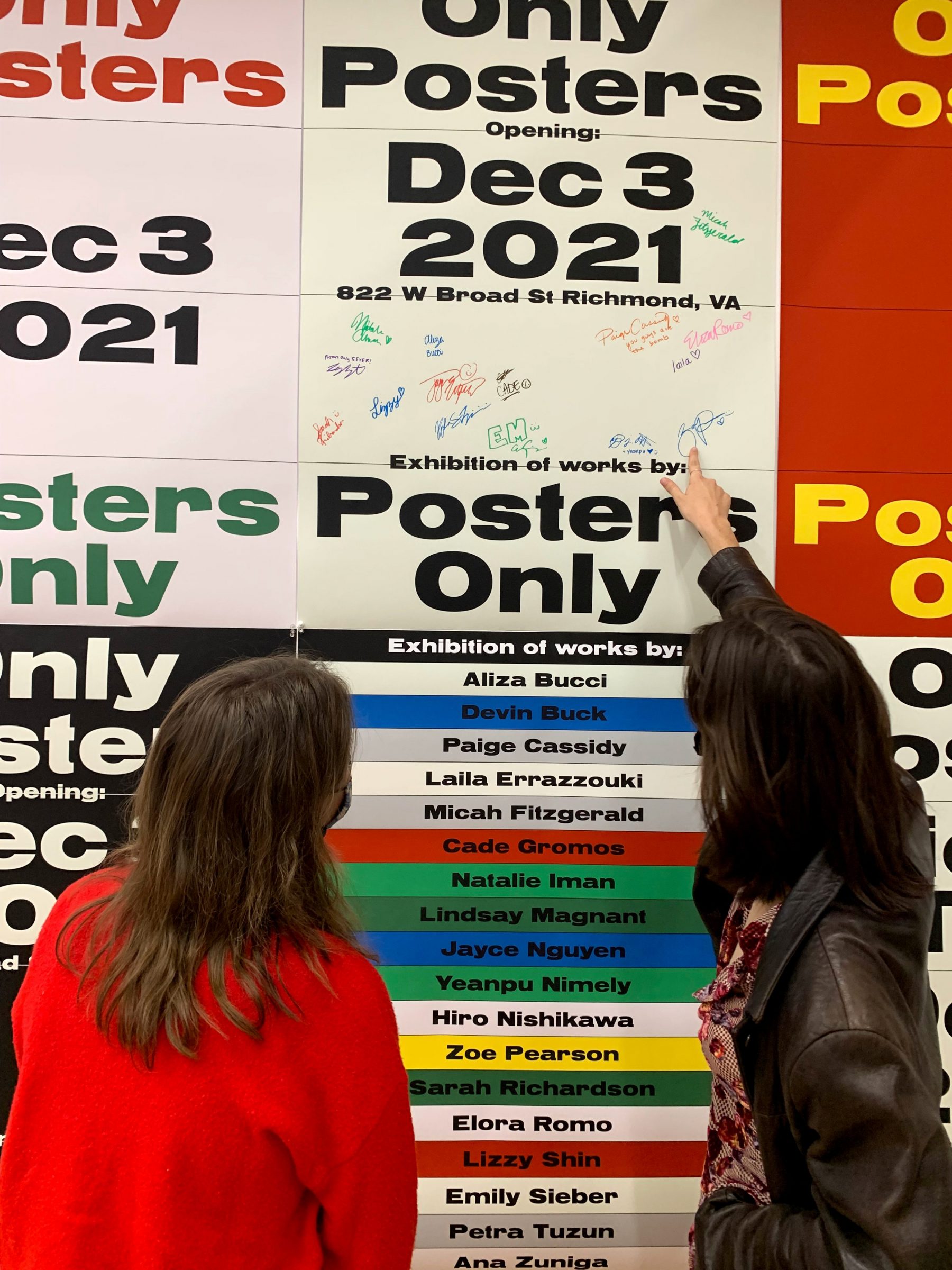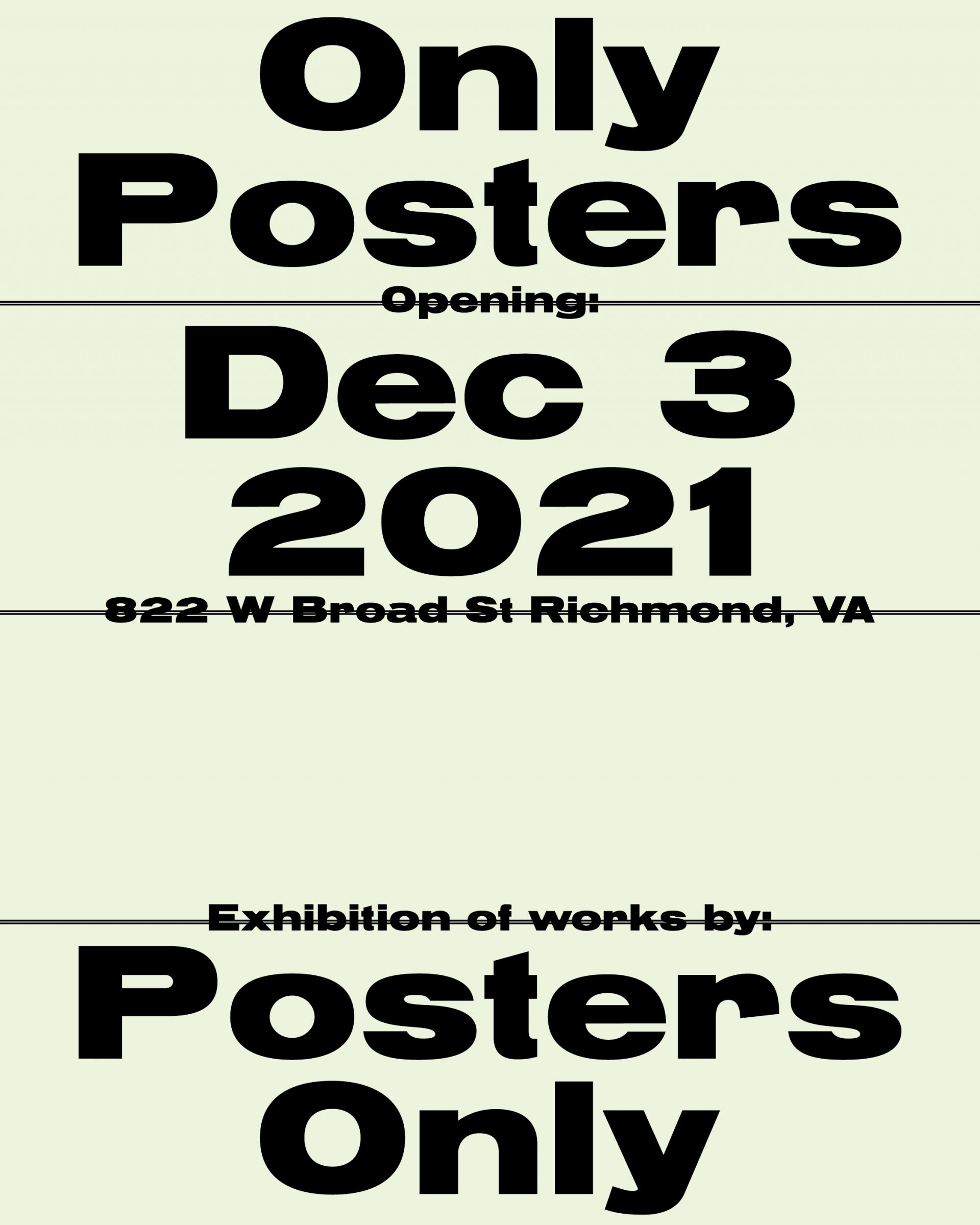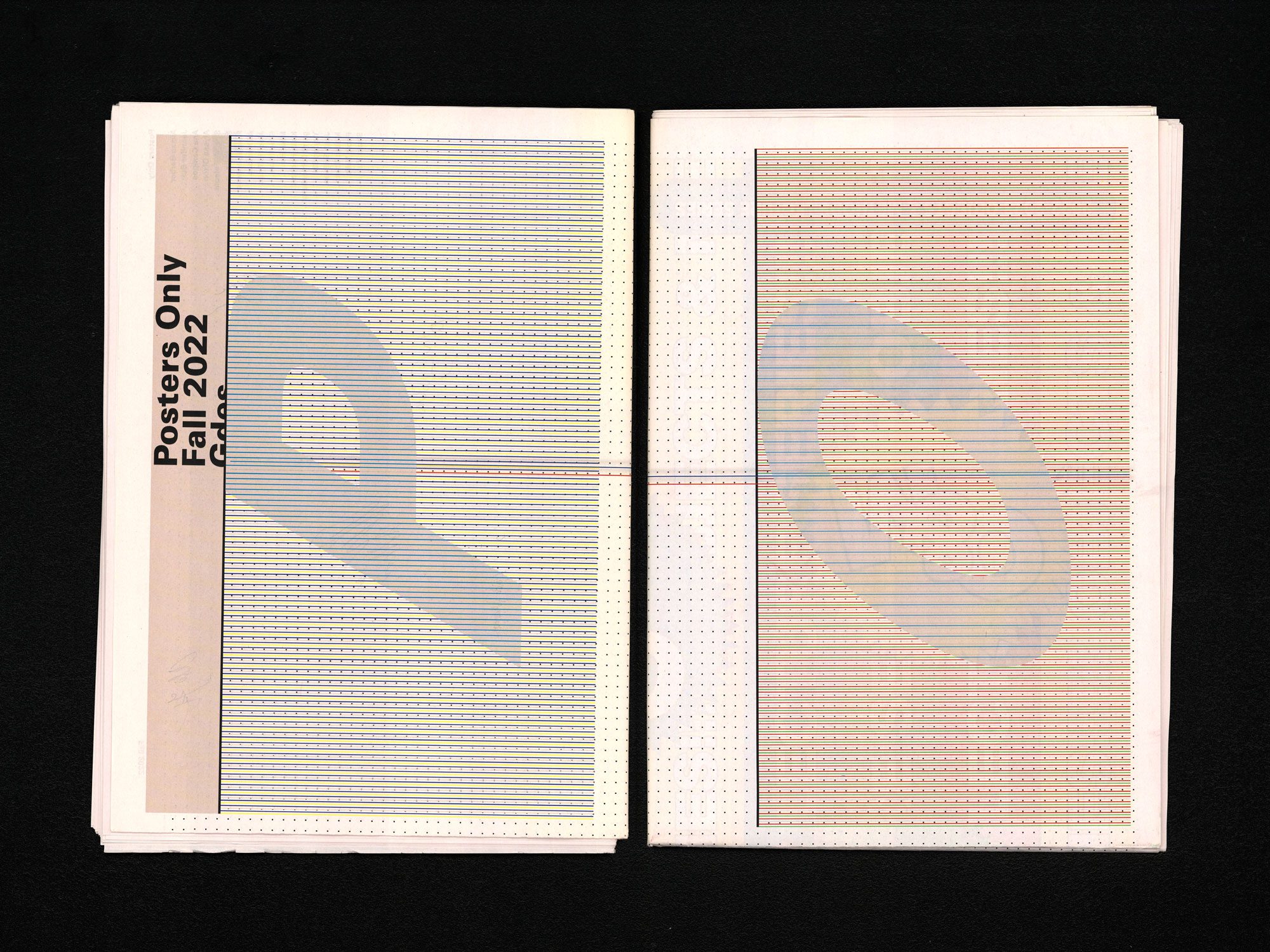- Group exhibition by "Posters Only"
- The Branch Museum of Architecture and Design
- Richmond, VA
- January 26, 2024 – February 20, 2024
A group exhibition by “Posters Only” at The Branch Museum of Architecture and Design, 2501 Monument Ave, Richmond, VA.
Exhibitors: Anastasia Marinova, Andres Gallo, Ariadna Perez, Ashley Bannerton, Betsy Kinstle, Damon Jones, Ella Tessitore, Gigi Pham-Ton, Hannah Robinson, Jack Lwin, Jonah Shoval, Jood Farkouh, Madison Tran, Megan Caramico, Michael Reeves, Molly Garrett, nadia ali, Reagan Young, Shaikha Al-Hajry, Sydney Eversten
We Have a Few Thoughts; is a poster exhibition created by Posters Only, a group of twenty designers based in RVA, in collaboration with Virginia Commonwealth University and The Branch Museum as a response to the concurrent exhibition Women’s Rights are Human Rights. Each poster shares an aspect of the individual designer’s personal connection to feminism, to highlight struggles closer to home. No attempt could represent an accurate canon of the diverse ways we have all experienced gender-based violence. Working in tandem, these two exhibitions create a microcosm of feminist issues facing the world today. As Chimamanda Ngozi Adichie articulated, “Some people ask, “Why the word feminist? Why not just say you are a believer in human rights, or something like that?” Because that would be dishonest. Feminism is, of course, part of human rights in general – but to choose to use the vague expression human rights is to deny the specific and particular problem of gender.”
This collection of posters, created by designers of diverse gender identities and backgrounds, demonstrates a shared commitment to feminism and the collective movement for liberation from patriarchy. The works presented in this exhibition comment on various issues that intersect with feminism. These issues include systemic disadvantages such as reproductive injustice1, lack of bodily autonomy and freedom, economic devaluation of care work2, glass ceilings, unrealistic and harmful beauty standards, and the inaccessibility and inadequacy of healthcare3.
Each poster in the collection contains a specific shade of pink, the color of thousands of pussyhats seen in the 2017 Women’s March crowds. As designers engaging with contemporary culture, the use of this color references the most impactful demonstration regarding gender that our generation has witnessed. We acknowledge the failure of this demonstration to adequately address intersectional feminist concerns of queer, trans, Black, indigenous, people of color, disabled, and impoverished communities. We firmly believe that feminism does not only serve women; it is in the best interest of all people. Engaging through intersectional perspectives reveals that these issues are interconnected. Collective resistance empowers us to confront inequalities of all kinds. We must dismantle oppressive structures to rebuild a more just and compassionate world.
- The reproductive justice framework, which includes reproductive health (physical, mental and social well-being related to the reproductive system) and reproductive rights (achieving women’s individual reproductive freedom through the legal system), is an intersectional approach to sexual and reproductive health care. Today, discourse is largely polarized around abortion, but reproductive justice also includes issues of sex education, gender essentialism, safe and affordable contraceptives, sexual violence, domestic violence, marital rape, period poverty, the motherhood penalty, absence of universal paid family leave, and so on. ↩︎
- Cultural values and practices around the world have the power to incentivize learning specific skills, shaping individual behaviors and preferences, which can inform gender expression. The gendered division of labor has feminized and devalued care work, and obscured women’s economic activity throughout history. Care work includes paid occupations like teaching and nursing and an array of unpaid domestic work, often disproportionately performed by women and people assigned female at birth. ↩︎
- Women in the US, on average, have higher healthcare costs and higher rates of poverty. Many women go without needed care regularly because it is not affordable, and changes made by the Trump administration to Medicaid and family planning programs have exacerbated these issues. ↩︎
References:
- Okin, Susan Moller. “Feminism, Women’s Human Rights, and Cultural Differences.” Hypatia 13, No. 2 (1998): 32–52. http://www.jstor.org/stable/3810636.
- Bunch, Charlotte. 1994. Strengthening human rights of women. In World conference on human rights, Vienna, June 1993: The contributions of NGOs: Reports and documents, ed. Manfred Nowak. Vienna: Manzsche Verlag Universitatsbuchhandlung.
- Clark, Helen . “Gender equality is everyone’s struggle – but also everyone’s gain.” Essays on Equality. The Global Institute for Women’s Leadership. https://www.kcl.ac.uk/giwl/assets/essays-on-equality.pdf
- Borchelt, Gretchen. “The Impact Poverty Has on Women’s Health.” Human Rights Magazine. Vol. 43 No. 3: The State of Healthcare in the United States. https://www.americanbar.org/groups/crsj/publications/human_rights_magazine_home/the-state-of-healthcare-in-the-united-states/poverty-on-womens-health/
Special thanks to:
Exhibition Statement: Written by nadia ali and edited by Molly Garrett
Our deepest gratitude to the Branch Museum for hosting Posters Only, and Lauren Thorson for coordinating this exhibition. We understand how rare an opportunity it is to speak publicly on political issues, uncensored by ideological and institutional hegemonic powers. We are very grateful for this privilege and right that many are unjustly denied and continue to fight for.
Posters Only is a format-specific workshop focusing on the poster as a medium. Members rotate each year. For more information and works see @postersonly on instagram.
See more: Posters Only























